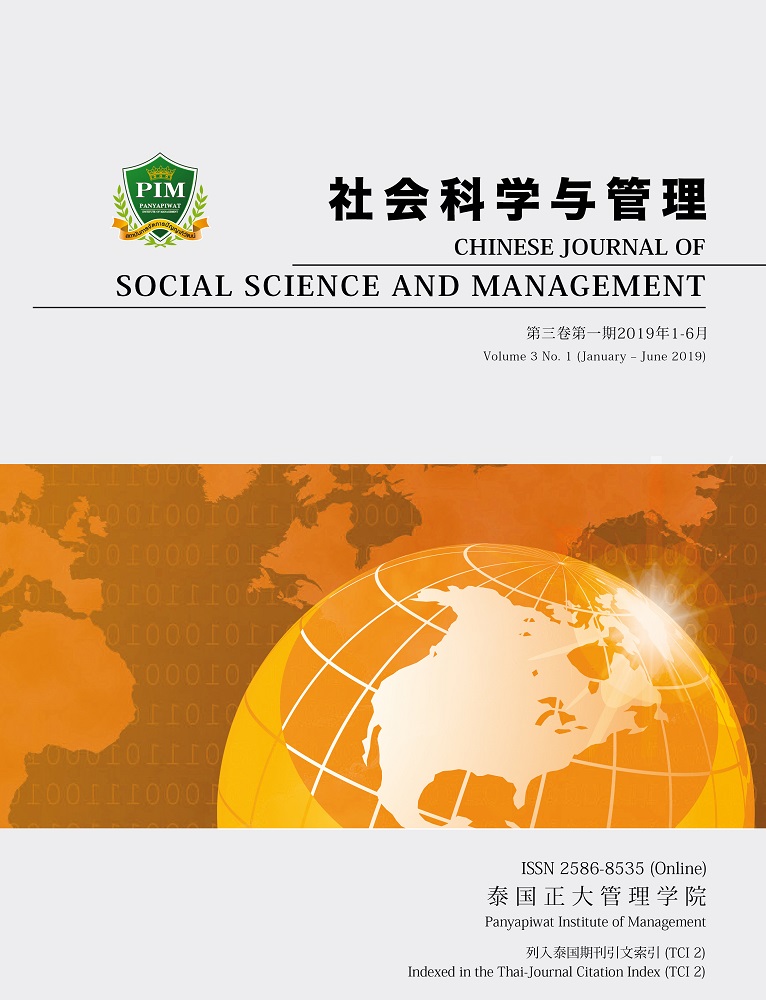EXPLORATORY RESEARCH ON THE INFLUENCING FACTORS OF TEAM KNOWLEDGE SHARING
Main Article Content
Abstract
As the mainstream of knowledge management, knowledge sharing is especially important. In this era of knowledge economy, it is impossible to reflect the value of knowledge if the knowledge cannot be well disseminated and used. It can form the core competitiveness of the enterprise by understanding the relevant factors that affect knowledge sharing and solving knowledge sharing problems in enterprises. Existing literature on knowledge sharing are limited to the studies on the means, obstacles and management of knowledge sharing, and most of them study the influencing factors of knowledge management by adopting empirical research methods. In this paper, 20 interviewees with teamwork experience were selected, and in-depth interviews were performed by adopting semi-structured interviews to learn about the typical cases they provided; meanwhile, the content of the case was refined, analyzed and coded through grounded analysis. Then, 13 factors affecting knowledge sharing were obtained, and they were summarized and classified into 6 categories according to their attributes including perceptual factors, behavioral factors, predisposing factors, ability factors and interpersonal factors. The results of this study provide certain guiding significance for the process of knowledge sharing.
Article Details
Chinese Journal of Social Science and Management Editorial Division
The Office of Research and Development, Panyapiwat Institute of Management
85/1 Moo 2, Chaengwattana Rd., Bang Talat, Pakkred, Nonthaburi 11120, Thailand
Tel. 02 855 01048 E-mail: cjssm@pim.ac.th
References
Cai, N. & Li, C. (2007). Knowledge Sharing and the Foundation of Investigation Theory. Information Science, 25(1), 30-36.
Fassinger, R. E. (2005). Paradigms, praxis, problems, and promise: Grounded theory in counseling psychology research. Journal of counseling psychology, 52(2), 156.
Fei, F. (2008). Grounded Theory Methodology: Tenets, Procedures and Criteria for Evaluation. Journal of Public Administration, 3(1), 23-43
Lin, H. Y. & Li, L. F. (2002). On Knowledge Shared. Studies in Dialectics of Nature, 18(8), 43-46+55. [in Chinese]
Long, Y. (2007). On the Significance and Obstacles of Knowledge Sharing. New West (second half–month), (8), 158. [in Chinese]
Mi, J. Q. & Sun, B. (2003). Knowledge Sharing – the Core of the Knowledge–Based Enterprise Management. International Economics and Trade Research, 19(4), 44-46. [in Chinese]
Song, J. Y. & Chen, J. (2005). Efficiency Analysis of Enterprise Tacit Knowledge Sharing, Science of Science and Management of S. & T., 26(2), 58-61. [in Chinese]
Wang, C. H. (2010). Researching on Knowledge Sharing Behavior among Employees Based on the Social Exchange Theory. Journal of Huainan Teachers College, 12(2), 44-46+52. [in Chinese]
Wang, Y. (2013). The Relationship of Human Resource Management Pratices, Multiple Knowledge Sharing and Performance of Knowledge Sharing. Journal of Industrial Technological Economics, (11), 22-32. [in Chinese]
Wang, Y., Xie, H. F., Wang, K. & Xu, Q. (2008). Two Paradiams and Seven Respects of Research on Knowledge Sharing. Journal of Chongqing University (Social Science Edition), (5), 48-53. [in Chinese]
Xue, H. J. (2010). The Research on Dilemma of Knowledge Sharing and Solution, Journal of Intelligence, 29(3), 103-106. [in Chinese]
Zeng, P., Lan, H. L. & Xie, H. M. (2006). The Model of Elements Affecting Enterprise Knowledge Sharing. Commercial Research, (4), 24. [in Chinese]


